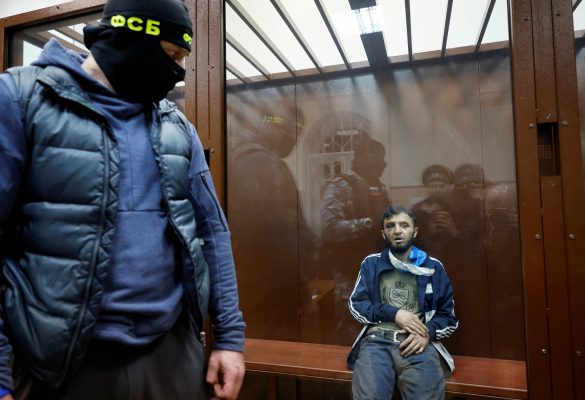Hungarians are mostly concerned with inflation (50%), healthcare (27%), and their household financial situation (15%), according to the most recent Eurobarometer polls.
Populists are said to focus on the issues that the public is the most concerned with and find alternative, creative and atypical solutions. Following this logic, the persistent popularity of Viktor Orbán must be based on his ability to deal with these worldly issues. But while the government has a recovery plan, economic recovery is absolutely not what dominates the agenda in Hungary these days.
Instead, the government is running a billboard campaign and is discussing a referendum on a totally different topic: “Sexual propaganda” in the classroom, LGBT activists, gender reassignment surgery, together with the traditional anti-Brussels, anti-immigrant, George Soros-bashing messages. This follows legislation from the governing party Fidesz that makes “promotion of homosexuality” (whatever that means) illegal among children — a more restrictive regulation than the Russian original that had served as an inspiration.
The legislation provoked a fierce response at home and abroad. But despite tens of thousands of demonstrators gathering in Hungary, widespread international condemnation from the EU, the U.S., and international organizations such as the Council of Europe, the law came into force last month. According to the act and its related executive order, children under the age of 18 cannot be exposed to books or audiovisual content deemed to promote homosexuality, while products that promote homosexuality cannot be sold within 200 meters of schools and churches. The regulation is so vague that some have questioned whether the works of Thomas Mann, Truman Capote, or Sappho are covered by the legislation.
Orbán’s regime has a clear goal: to control the political agenda at any price. This also helps to divert attention from the scandals. The issue of pedophilia only really emerged as an issue after Hungary’s ambassador to Peru was convicted of possessing 19,000 indecent images of children. There have been other uncomfortable issues too: unpopular measures to bring the Chinese Fudan University to Budapest, or the government’s involvement in the surveillance of opposition figures and journalists with the Israeli Pegasus spyware. And the freezing of €7.2bn in recovery funds by the European Union and losing €200m in grants from Norway because Hungary won’t play by other people’s rules.
Orbán is following the playbook of so-called populist (or tribalist) politicians. He talks not about issues that people care about, but he instead fights cultural wars which he knows draw a response from socially conservative voters. This is underlined when celebrities from the American right, such as the Fox News anchor Tucker Carlson or the conservative writer Rod Dreher, visit Hungary to praise his government for championing conservative values.
While Fidesz politicians have worked hard to dilute conflicts with EU institutions in Brussels (e.g. via voting with the mainstream in the European Parliament, as Political Capital Institute showed in the latest piece of research), this “peacock dance” is mostly over, and Orbán is sharpening the conflict instead to show strength and mobilize his electorate. This appears to be working. His popularity is practically on the same level as before the pandemic started —a notable political success less than a year before the next general election.
So is the LGBT issue simply another milestone on the populist road? It’s actually more important than that.
- First: this is the first time that the government has organized a campaign against a group of its own citizens;
- Second, its shows the weakness of the regime: in to order keep control of the political agenda, Orbán is using large amounts of political ammunition, risks permanently losing EU funds, and further reduces his reputation and diplomatic support on the West;
- Third, the case shows a chilling political unity on the governmental side, rare in democratic regimes: no politicians or public intellectuals on the right have raised their voices against the law; and
- Fourth, this issue fits into international patterns of the “authoritarian learning cycle”, and can be a model for others in the region.
That is an issue I shall return to in a subsequent piece.




